
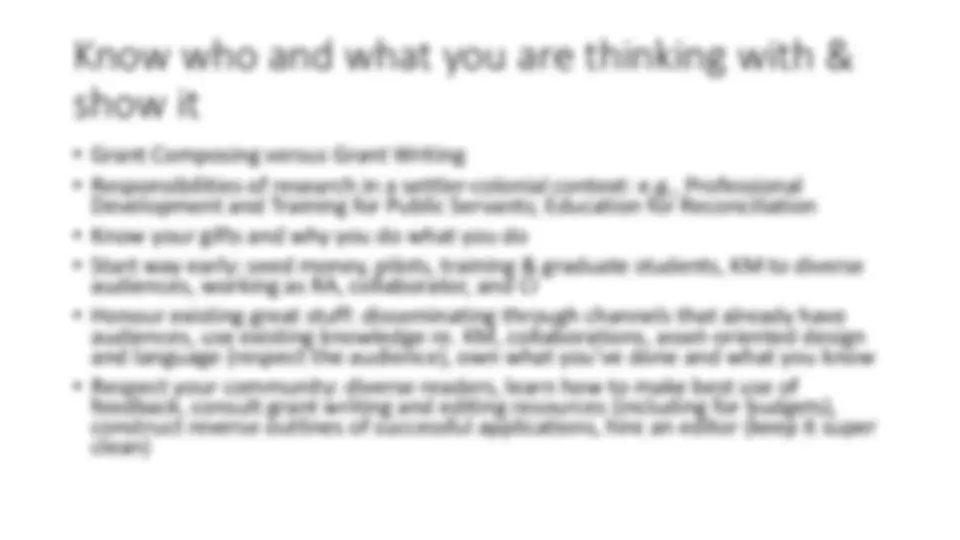
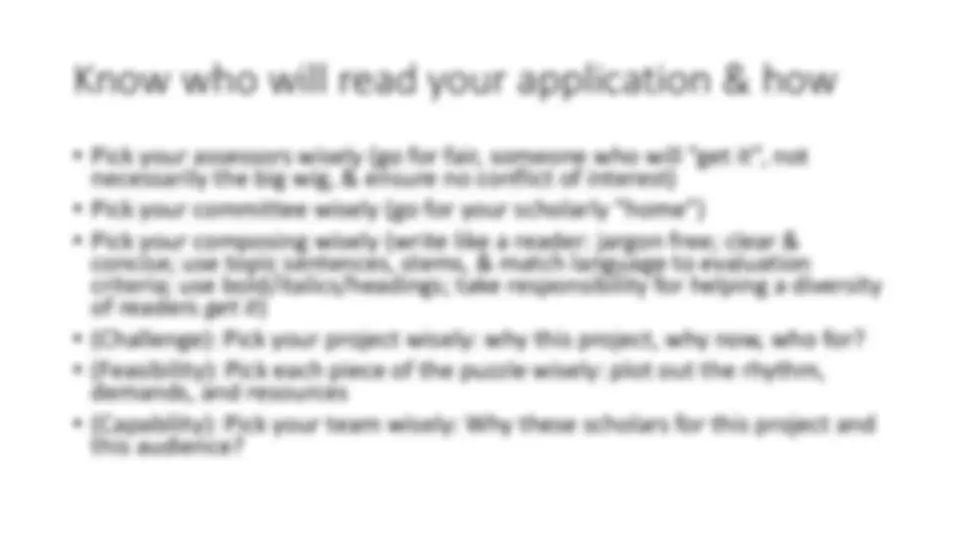
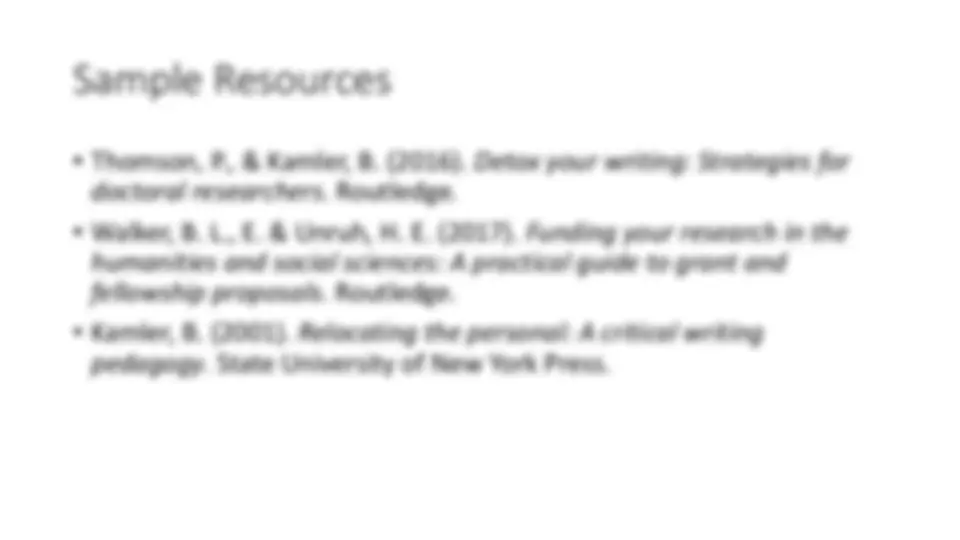
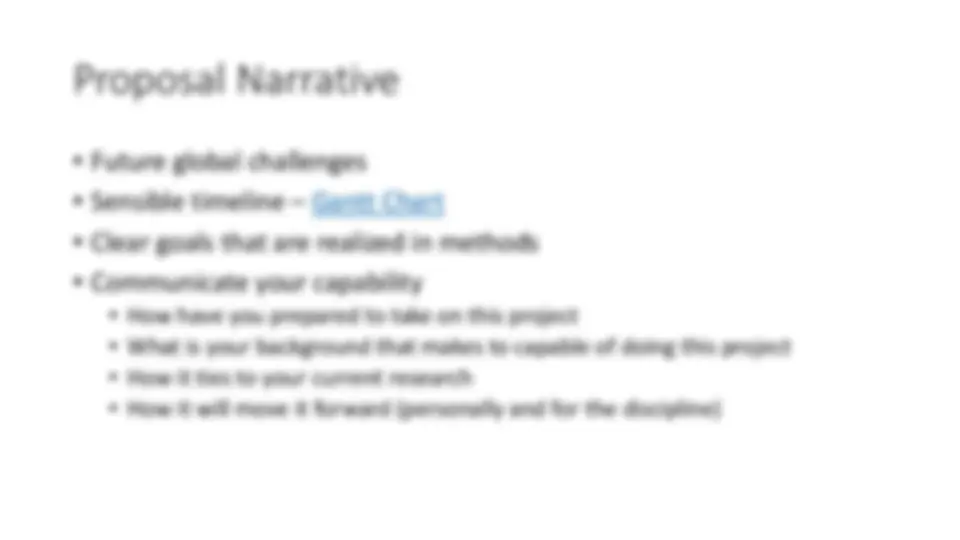
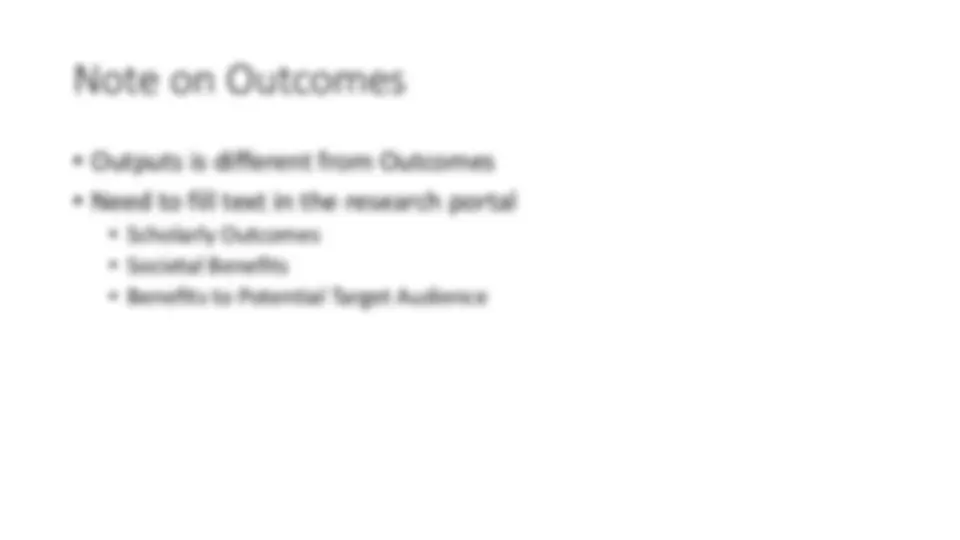
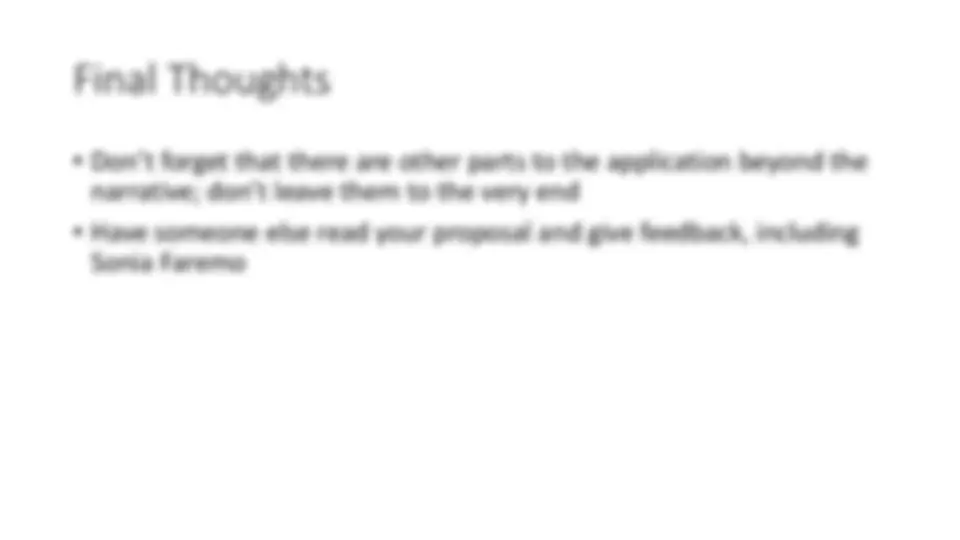
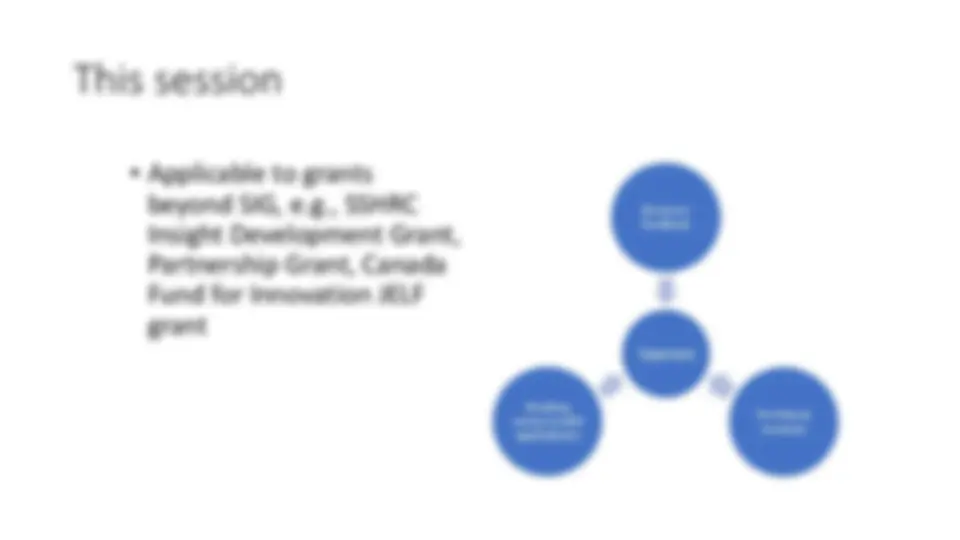
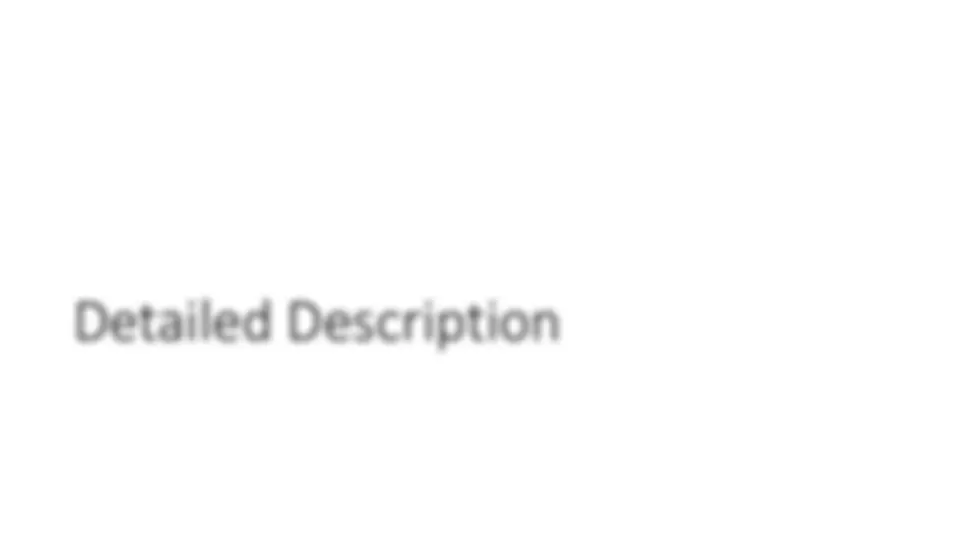
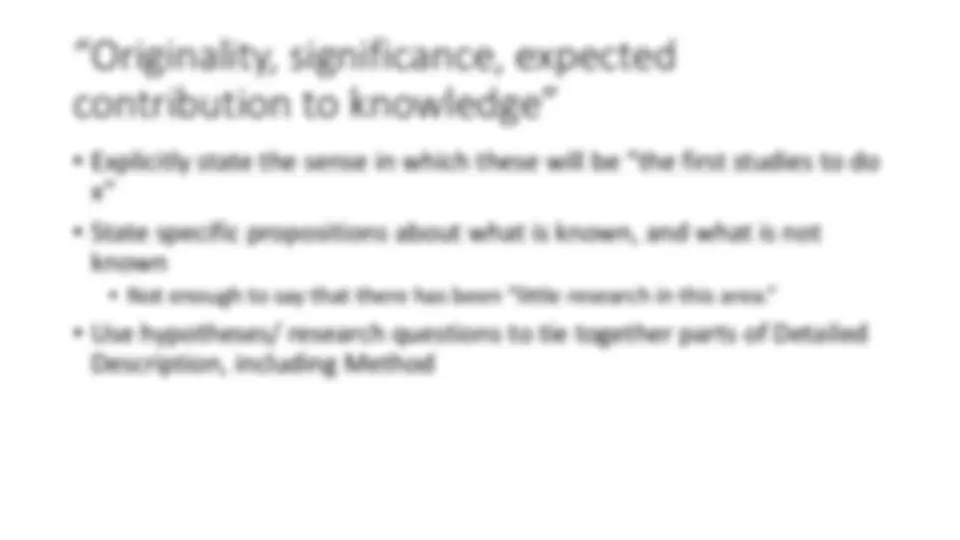
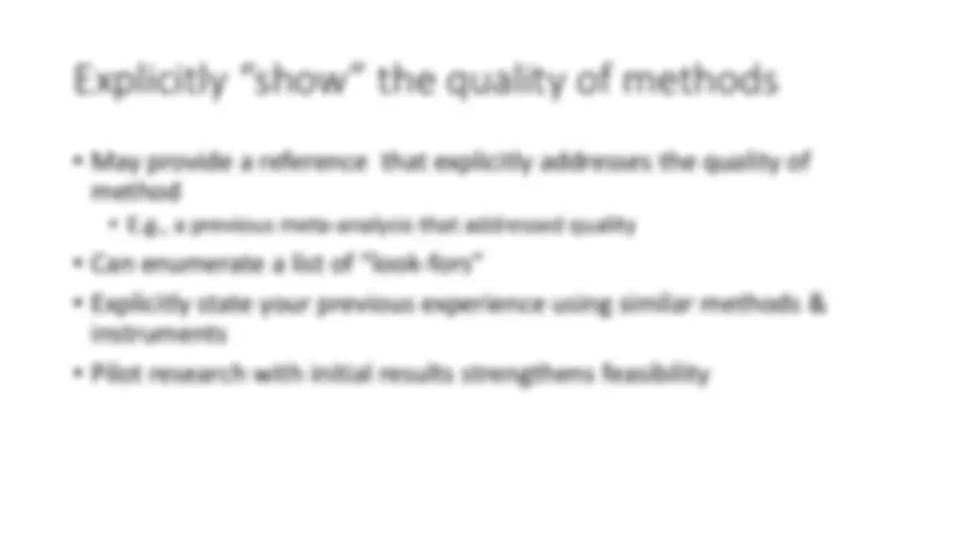
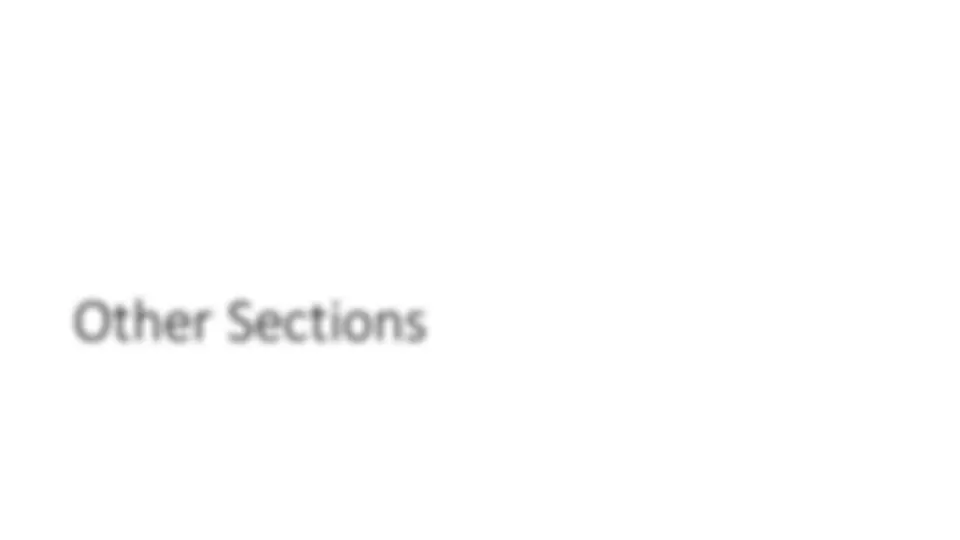
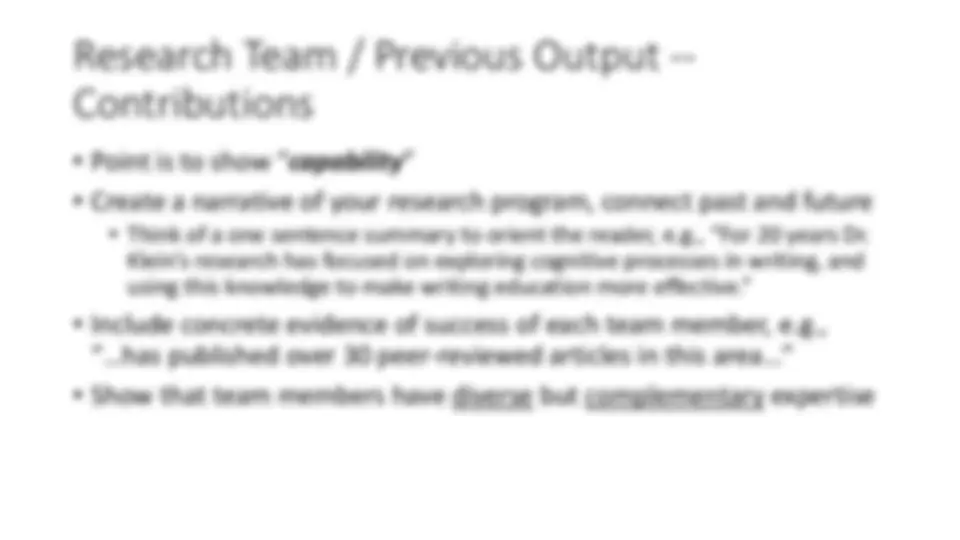
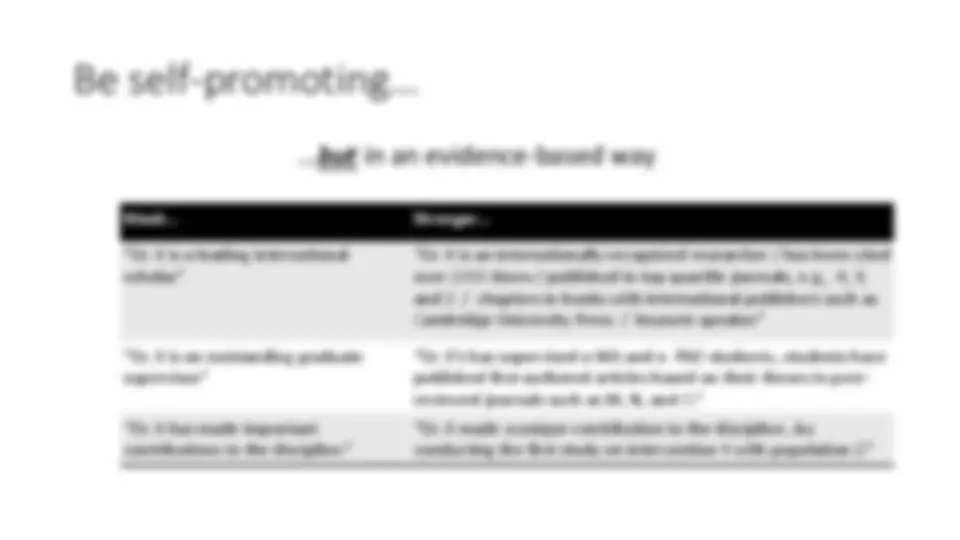
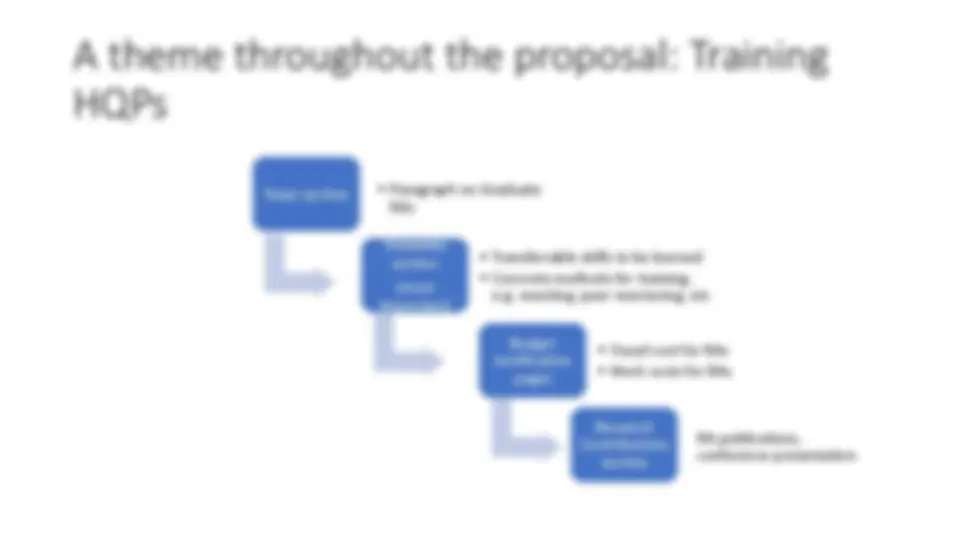
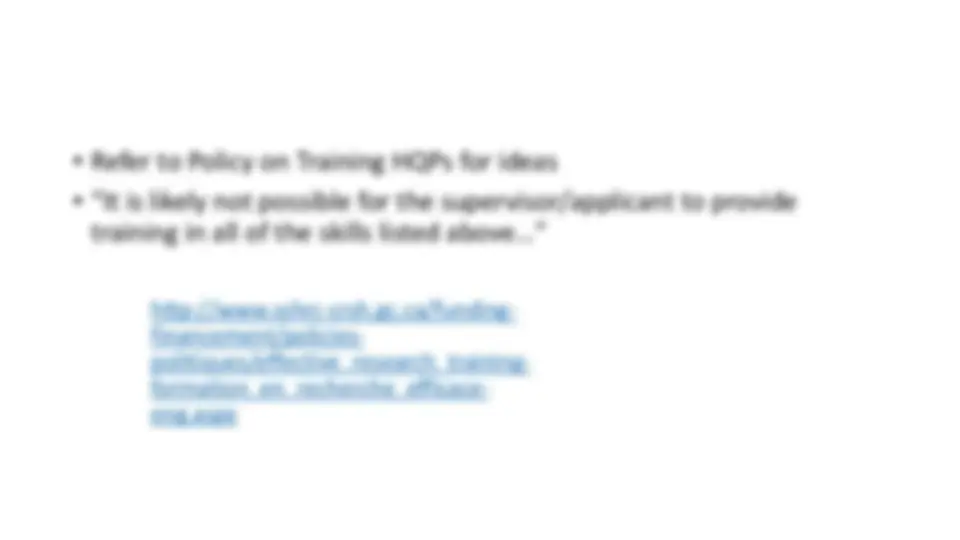
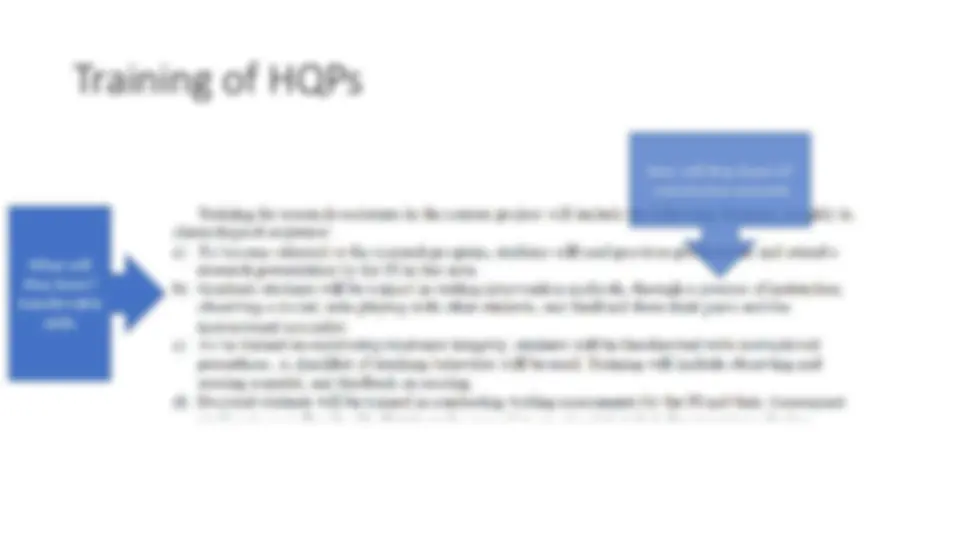
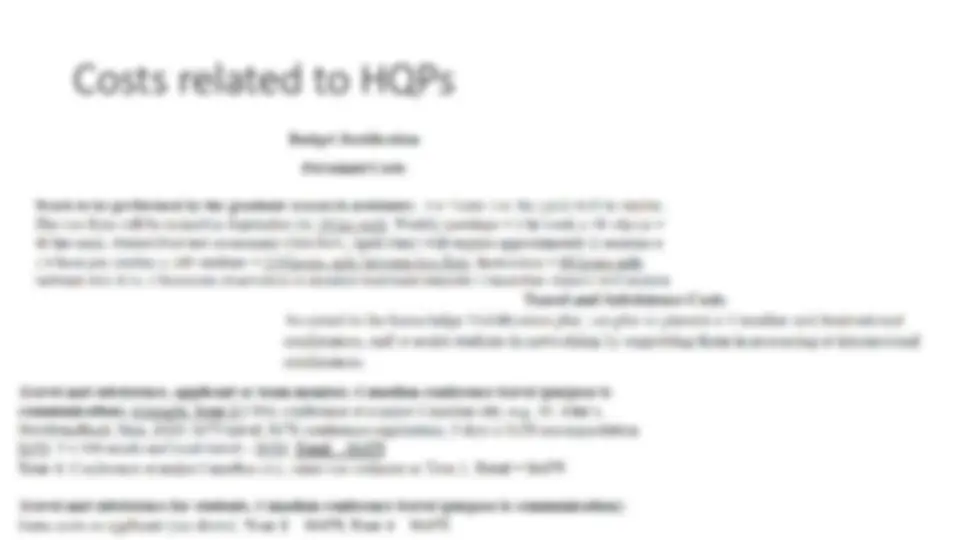
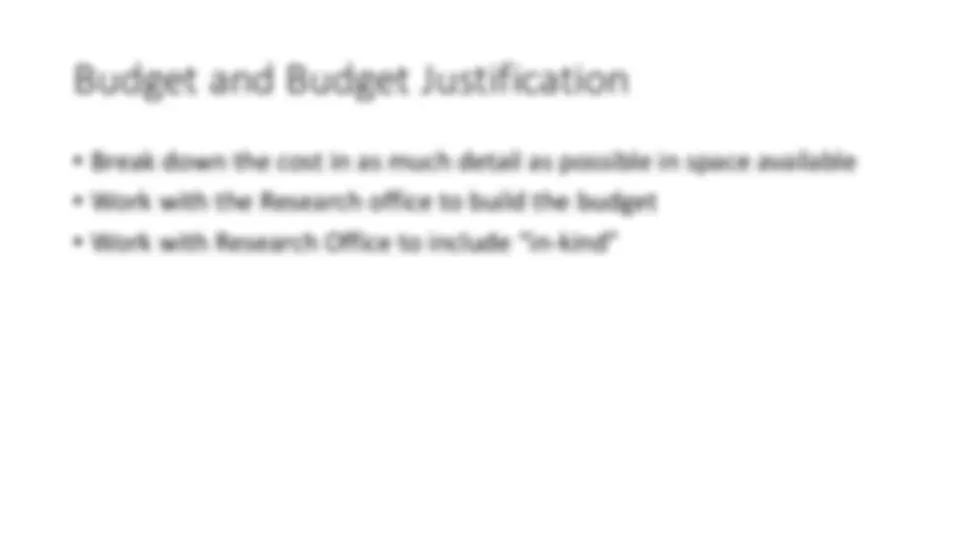
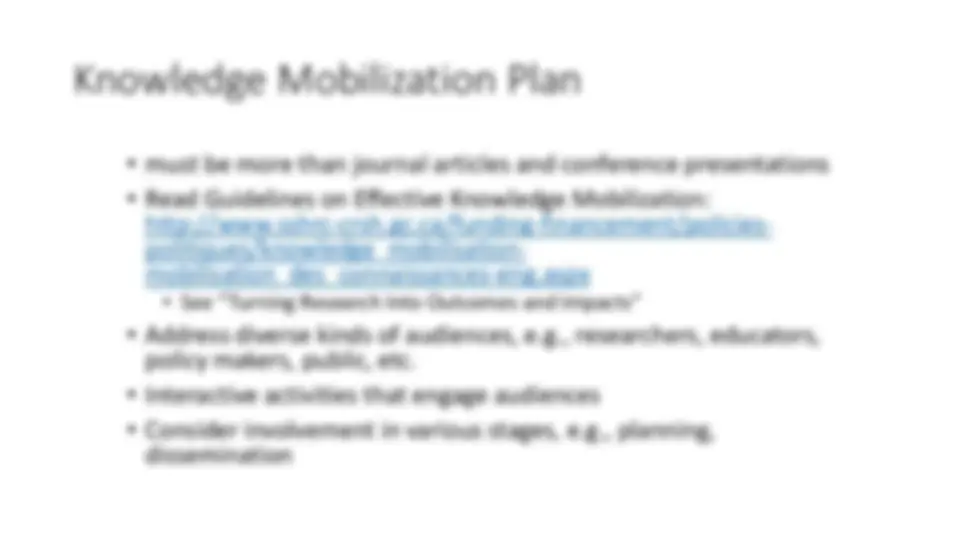
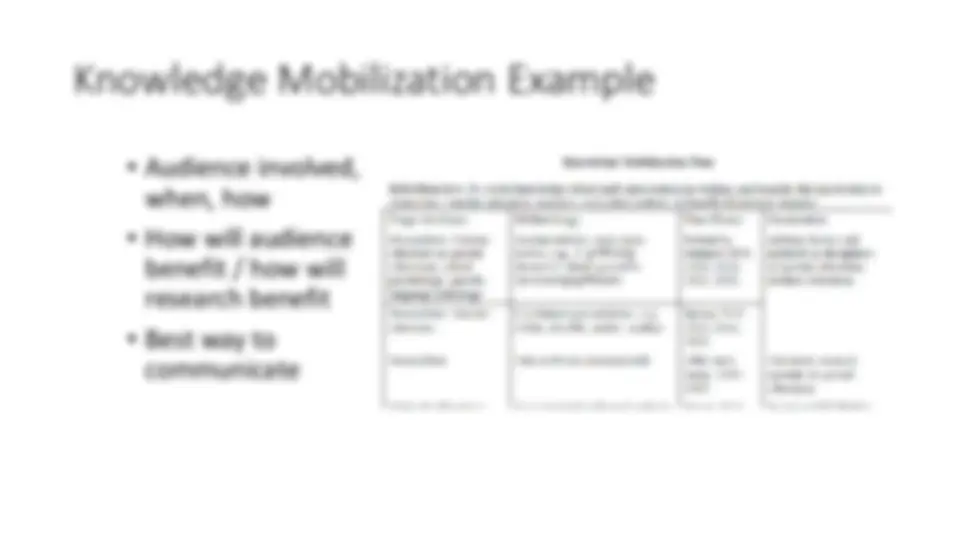
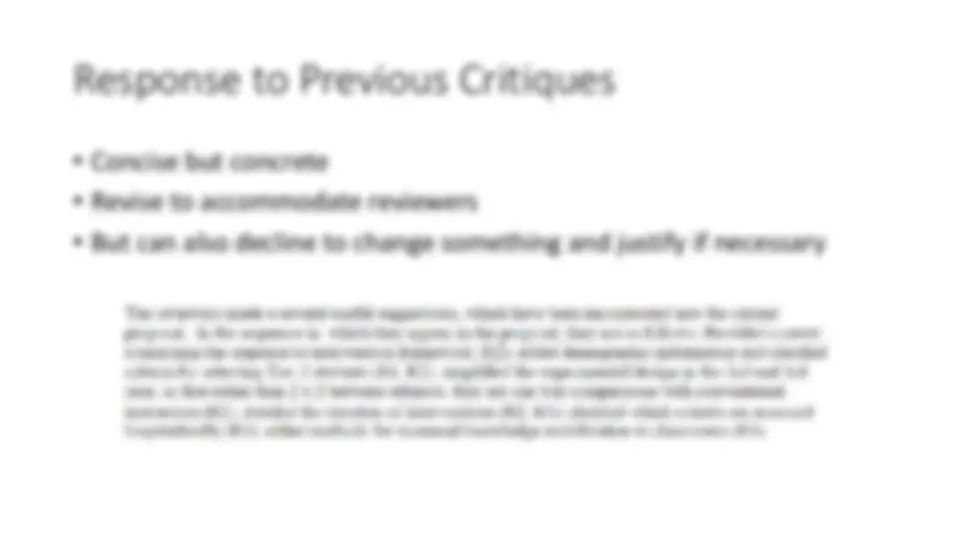
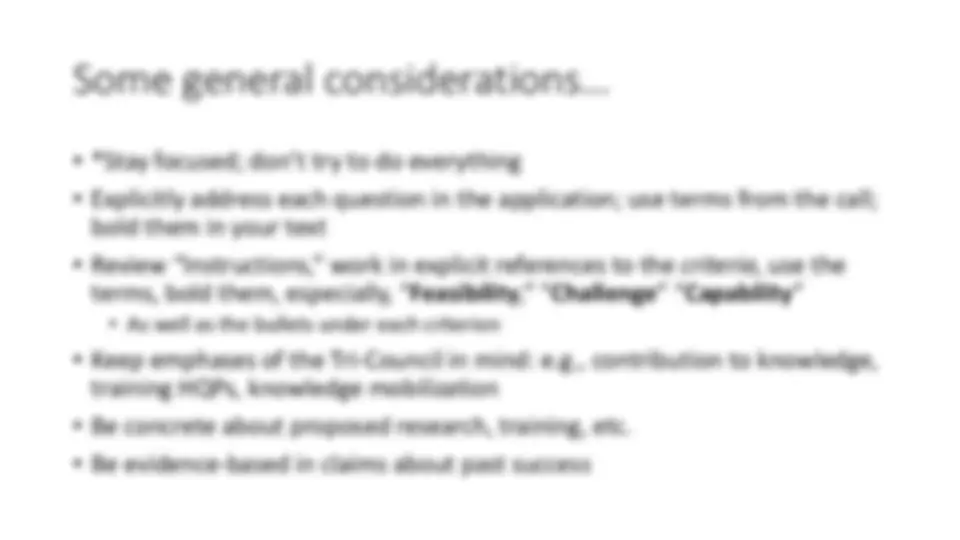
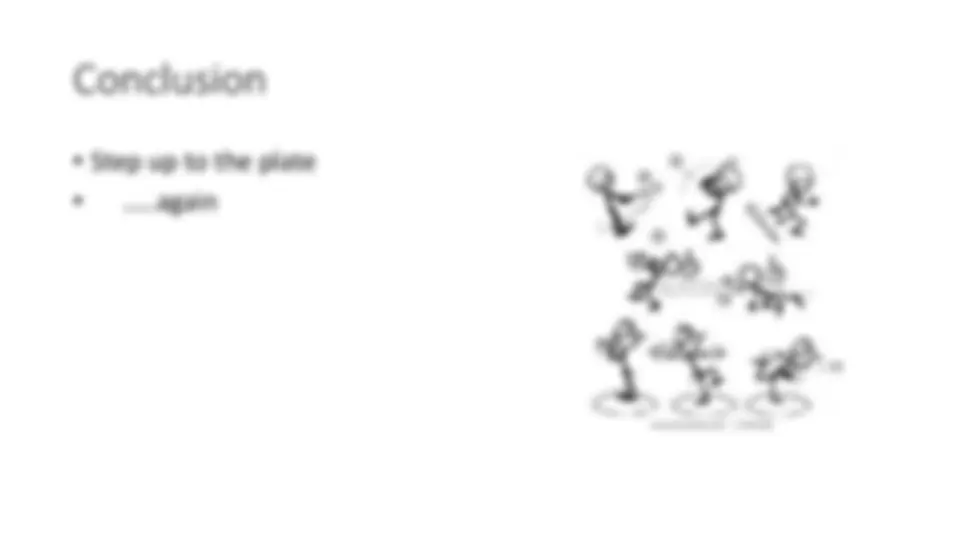


Study with the several resources on Docsity

Earn points by helping other students or get them with a premium plan


Prepare for your exams
Study with the several resources on Docsity

Earn points to download
Earn points by helping other students or get them with a premium plan
Community
Ask the community for help and clear up your study doubts
Discover the best universities in your country according to Docsity users
Free resources
Download our free guides on studying techniques, anxiety management strategies, and thesis advice from Docsity tutors
Notes from a SSHRC grant workshop. It provides tips and strategies for applying for SSHRC grants, including considerations for quantitative research, budget justification, and knowledge mobilization plan. The document also includes sample resources for grant proposals. The notes emphasize the importance of planning and preparation, outlining grant components, and creating a narrative about the research program. The document also provides tips for creating a strong research team and training HQPs.
Typology: Exercises
1 / 31

This page cannot be seen from the preview
Don't miss anything!
























Presenters: Rachel Heydon Anton Puvirajah Perry Klein
Rachel Heydon
Sources
Reviewerfeedback
Serving as reviewer un/successful^ Reading applications